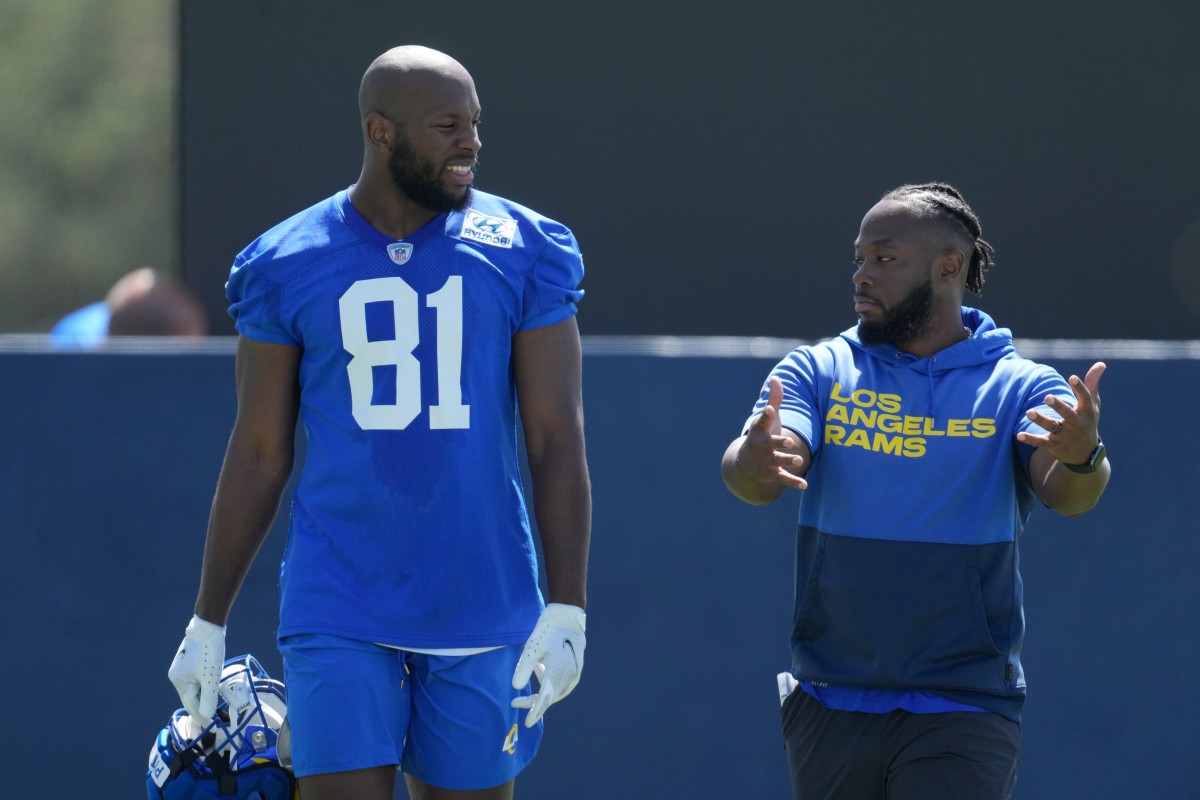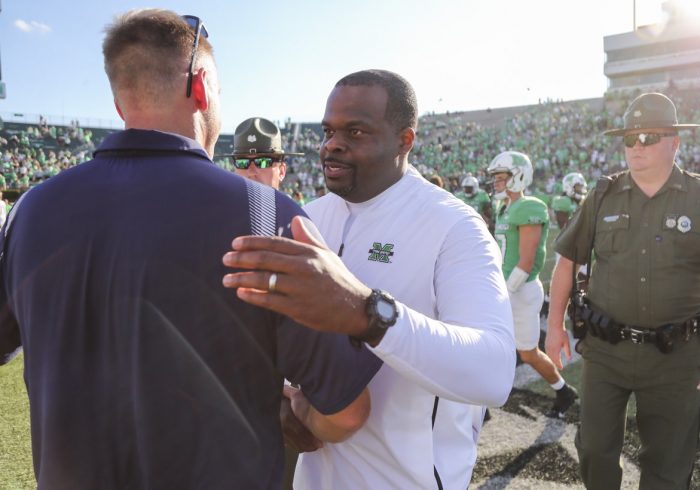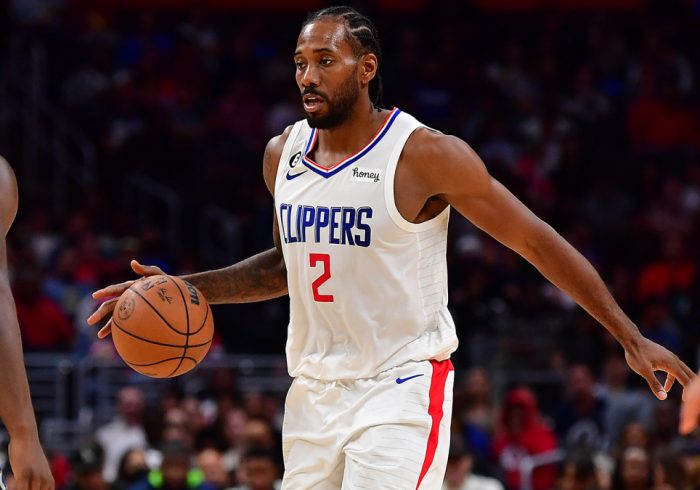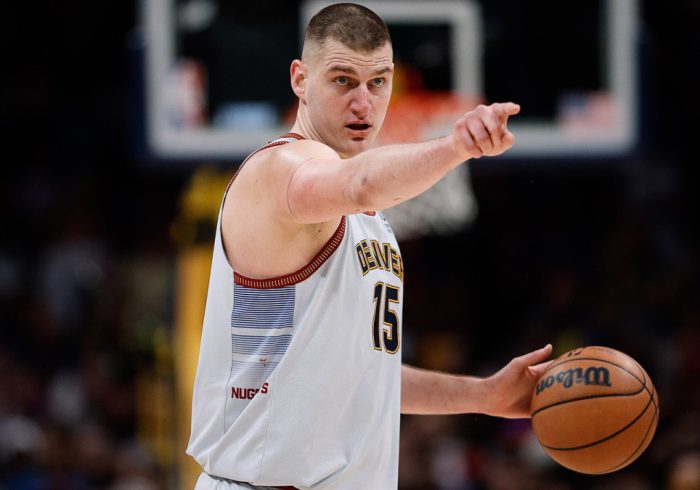Here’s a wild observation about the NFL head coach hiring process that speaks to both how ineffective and maddeningly routine the entire system has become: For the past five years, teams have been trying to hire someone reminiscent of Sean McVay without realizing how the Rams got McVay in the first place and trying to reverse engineer that process.
In 2016, McVay’s last year as an offensive coordinator, the Commanders were 8-7-1 and did not make the playoffs. The team was middling in some offensive categories and upper tier in net yards per passing and rushing attempts. The hiring world was full of people who would bloviate about the young coach as if he were still some kind of ripening fruit. But there were only a small handful of teams willing to swallow the potential public relations speedbump that came with legitimately considering the hiring of a very young coach from a team that didn’t perform all that well the previous season.
Mostly, teams stay in their comfort zone, which consists of waiting until a club performs well and then plucking a coach from that team, hoping the coach replicates that success. In many circumstances, they have to wait a year after the team has peaked so that the coach has time to squeeze in an interview. By then, it has already become somewhat evident that the team was less a product of the coach than the coach was a product of an expertly built roster, a soft schedule, a winnable division and so on and so forth.
Brown, the Rams’ assistant head coach/tight ends, could be one of the top coaching candidates in 2023.
Kirby Lee/USA TODAY Sports
Of course, as the fairy tale goes now, McVay blew the Rams away in an interview. They actually listened to him instead of trying to press him onto a movie poster they could use to sell tickets. They decided to take a chance, and the rest of the search firms, GMs and owners who hired the milquetoast coordinator du jour that cycle were left to explain why they just couldn’t bring themselves to do it.
I was thinking about this recently in regard to Thomas Brown, the assistant head coach of the Rams. Los Angeles is 5–10 and 31st in yards gained this year. It is 30th in passing yards per attempt and 29th in rushing yards per attempt.
And, yet, it’s the perfect time to hire someone from the McVay tree, just like an uninspiring performance from Washington in 2016 was the perfect time to hire McVay before anyone else figured out it was a good idea.
Of course, teams may not see it this way. They could be throwing elbows for assistants from the 49ers, Eagles, Cowboys, Bengals and so on (there are certainly some great candidates there), when they could be hiring someone just as qualified who, in a year where the Rams would have made the playoffs, would be just as sought after (and still very well might be during this cycle).
Los Angeles was completely throttled by injuries, especially on offense. Cooper Kupp, Allen Robinson, Joe Noteboom and Matthew Stafford, to name a few. Does that make all of the coaches on the Rams’ staff less talented, or does it mean that they simply reached their injury-to-performance threshold and couldn’t overcome it? Doesn’t that make Baker Mayfield’s stunning late-game drive to beat the Raiders, or scoring 51 points on the Broncos’ excellent defense, more impressive in hindsight?
Let’s try a bit of a thought exercise. If the Rams were in the playoffs right now, and there was a coach on McVay’s staff who intimately knows the offense and is trusted with a critical chunk of the game plan, whom McVay described as perfectly “matter of fact” and “secure in himself” and whom he trusted to run his leadership meetings, wouldn’t that person be considered a slam dunk of a hire this time of year? Especially considering this person is also the Rams’ tight ends coach, which means they are sitting at the cross section of L.A.’s running and passing games. The way the Rams marry their run and pass is a kind of proprietary blend that clubs such as the Vikings and Bengals have sought and found success with former McVay coaches (Kevin O’Connell and Zac Taylor). It is the lifeblood of successful modern offenses.
Brown is that person. As the son of a pastor, he’s a dynamic leader who can grab a room by the shirt collar. As a former player, he is uniquely sympathetic to the plight of the individual player. On our list of top candidates this year, he is one of the few who screams “CEO” at a time when so many teams are desperate for that kind of structured leadership. This is the kind of information that might already be available if the Rams were vying for a Super Bowl, but even though they aren’t, does it make it less true?
The 2022 coaching cycle is unique in that many of the best candidates may come from teams that aren’t doing all that great. Mike Kafka isn’t calling a beautiful offense for the Giants, but he’s calling an offense that wins games with the assembled personnel. Ben Johnson in Detroit is putting up points like he’s in the PAC-12 but may be slightly overshadowed by the Lions’ porous defense. Brown is helping a Rams offense with nothing left stay positive and find the marginal gains necessary to make this a salvageable season.
All of these are qualities a team might look for in a coach—if they simply knew how to look.



